Root Awakening: Orbifolia Calathea may be affected by harsh sunlight
Sign up now: Get ST's newsletters delivered to your inbox
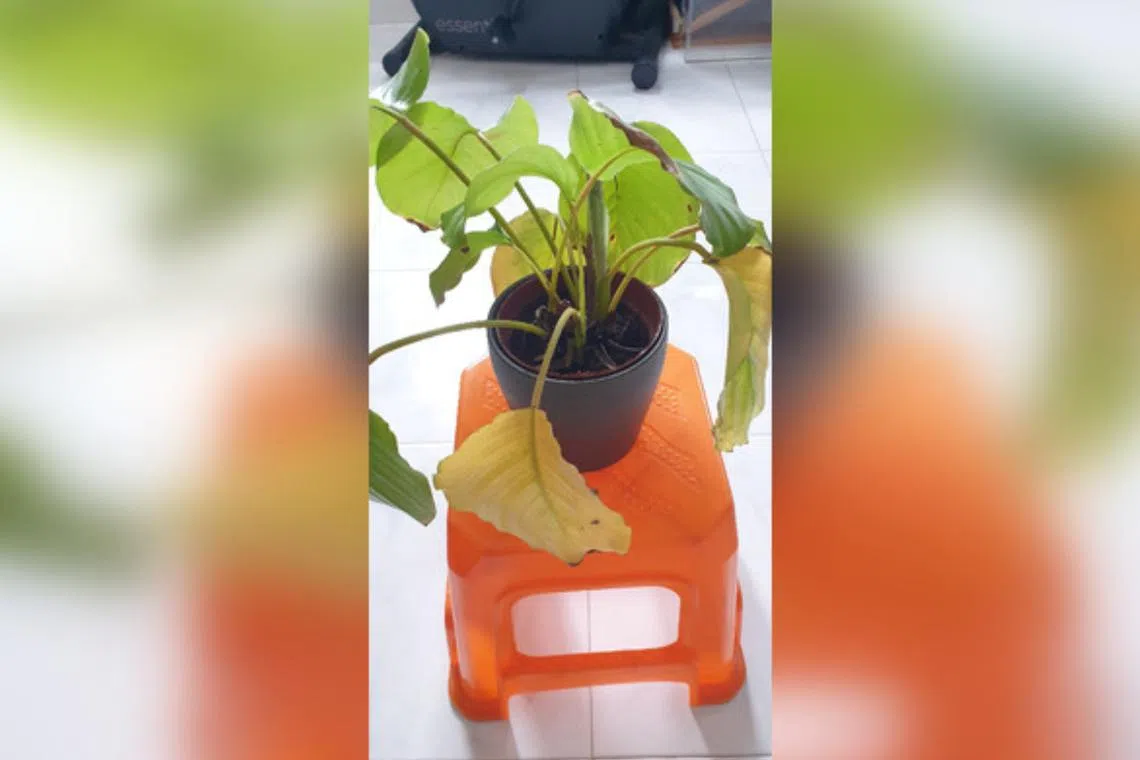
This Orbifolia Calathea is also sensitive to dissolved fluoride in tap water or build-up from chemical fertilisers.
PHOTO: LIM KIM HOCK
Orbifolia Calathea difficult to grow in high-rise settings
What is this plant? Its leaves seem to be burnt at the edges. What is wrong with it and how do I care for it properly?
Lim Kim Hock
Your plant looks like Goeppertia orbifolia, also known by the common name Orbifolia Calathea. These plants can be difficult to grow in high-rise environments as the wind and lower humidity can dry them out.
The leaves could have been burnt by intense sunlight. This plant is also reportedly sensitive to dissolved fluoride in tap water or build-up from chemical fertilisers.
Try flushing out the growing media and use rainwater to irrigate your plants instead. Reduce the frequency and amount of chemical fertiliser you are applying or use slow-release organic fertiliser pellets. Place the plant in a protected and semi-shaded location.
Plant may be shedding buds due to water stress
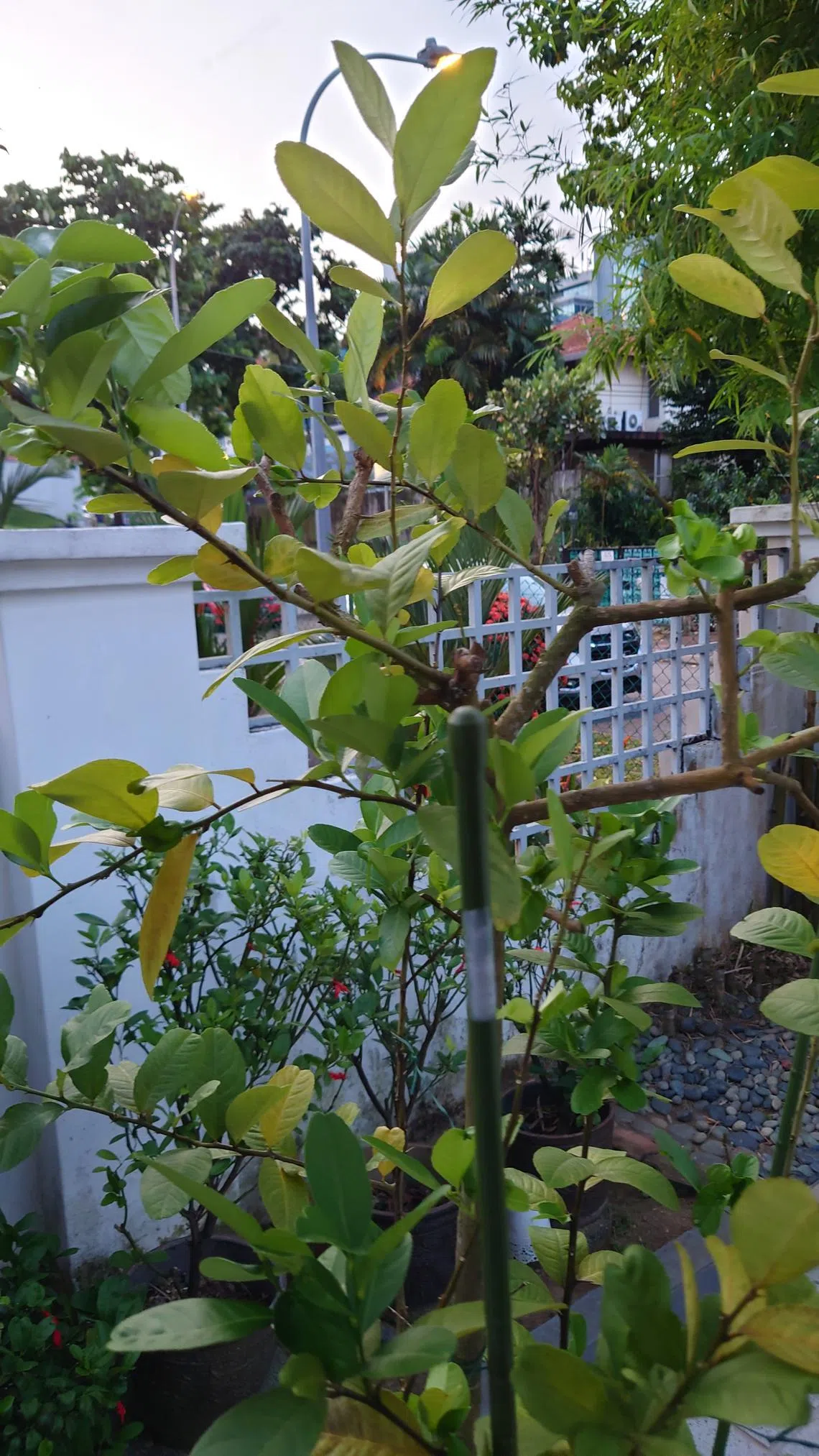
Lemon trees do not tolerate wet feet.
PHOTO: LONG HIN WEI
I bought a lemon plant about two years ago. It flowered recently, but the buds fell soon after. What should I do?
Long Hin Wei
Plants sometimes abort fruit due to inadequate pollination. Encourage beneficial biodiversity by minimising pesticide use and also by planting flowering species to attract pollinating insects. Otherwise, try hand pollination to promote fruit production.
Also, ensure your plant is well watered and not allowed to dry out. Stress caused by too much or too little water can cause the abortion of fruit.
Lemon plants do not tolerate wet feet. Grow the plant in a large pot that can be moved around easily – take this into account when growing such trees. It can then be moved into shelter during the wet season, where the plant’s root zone can dry faster than if it has been planted in the ground.
Lemon plant infested with sucking insects
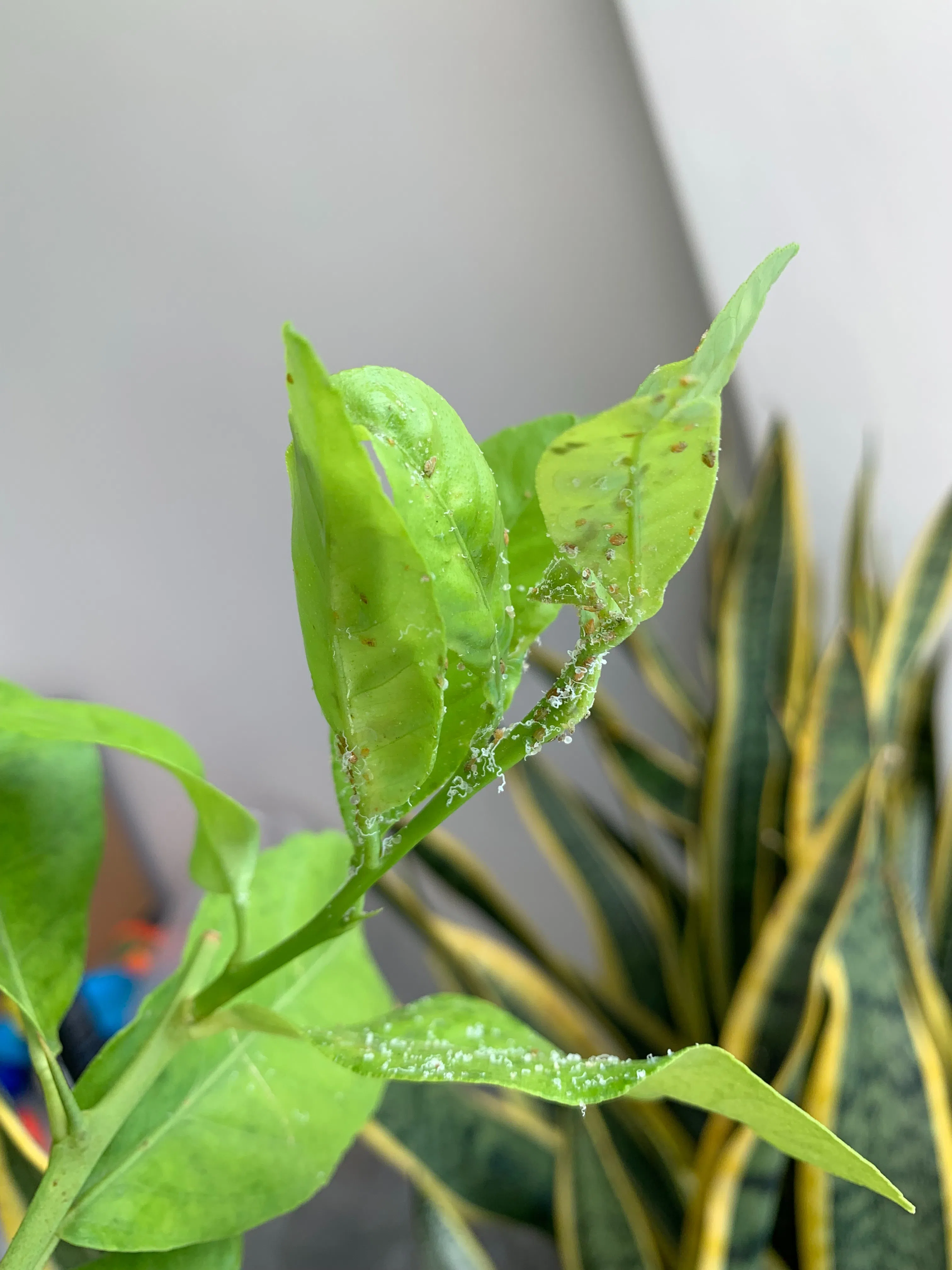
This lemon plant appears to have an aphid infestation.
PHOTO: LIM BEE SUAN
What are these bugs on my lemon plant? I sprayed neem oil on the infected leaves and pruned the affected branches, but the bugs keep appearing. What should I do?
Lim Bee Suan
The young foliage of your lemon plant appears to be infested with aphids and other sap-sucking insects. Effective pest control requires complete coverage in order to be effective.
Inspect your plant daily and use a jet of water to wash off harmful insects. Also, run your fingers over the stems and leaves to remove pests. These pesticide-free methods will control the pest population and create conditions for beneficial biodiversity, such as predatory fauna that can help with pest control..
Give your plant ample sunlight and reduce the use of nitrogen-rich fertilisers. These promote the production of soft green foliage, which attracts sap-sucking pests.
Curry tree leaves infested with mites
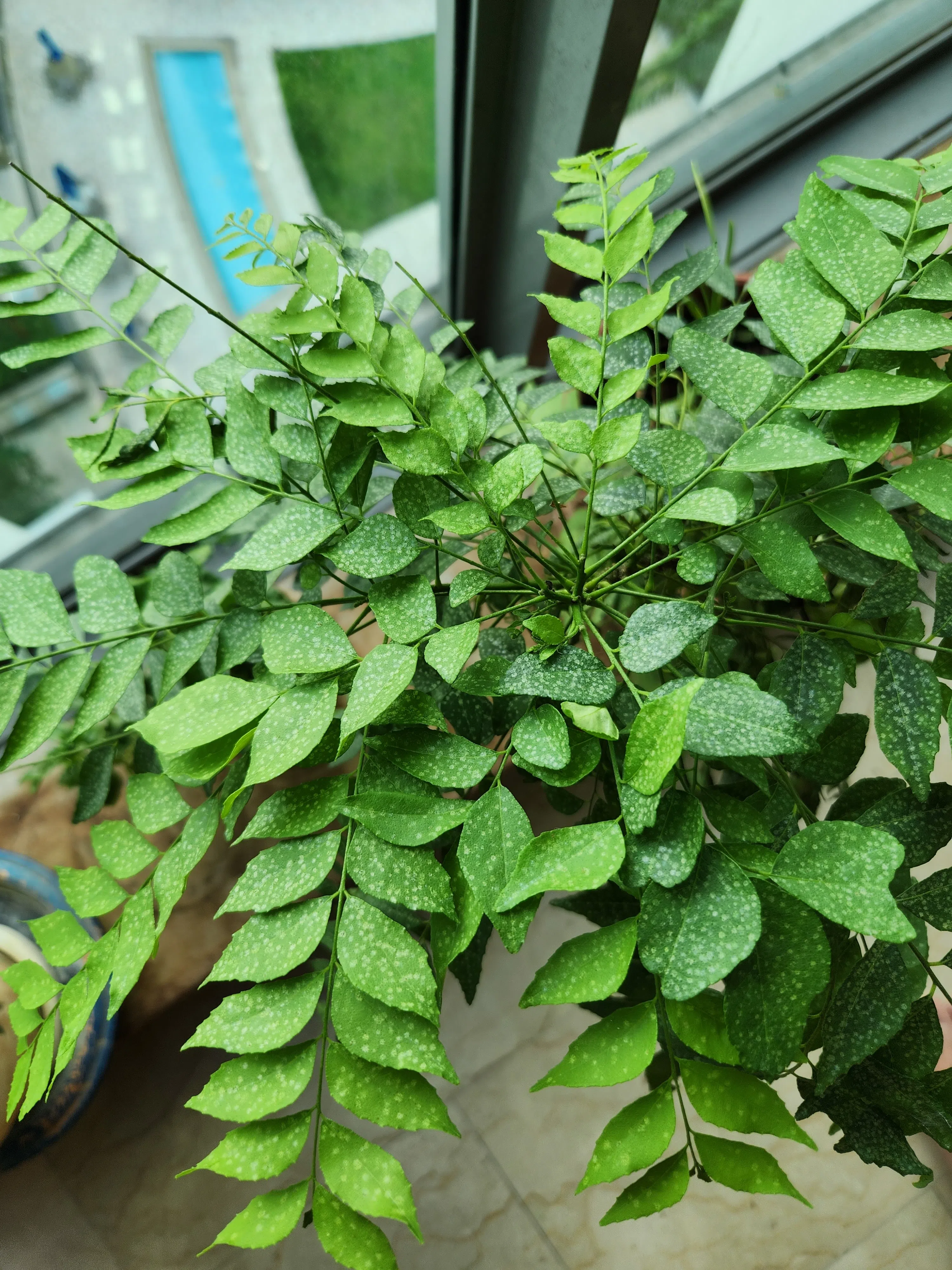
The spots on this curry tree's leaves may be caused by mites.
PHOTO: TAY KENG LIM
What are these white dots on my curry tree leaves and will they harm the plant? If so, how can I help it recover? Will the leaves still be safe to cook and eat?
Tay Keng Lim
The spots may be caused by Citrus Hindu Mites, which are so small that they are not visible to the eye. The spots on the existing leaves are permanent, but new leaves will replace them in time.
The pest population can be managed by spraying your plant with summer oil, which suffocates mites. Complete coverage and regular applications are needed to provide adequate pest control.
Ensure pomegranate plant is not stressed
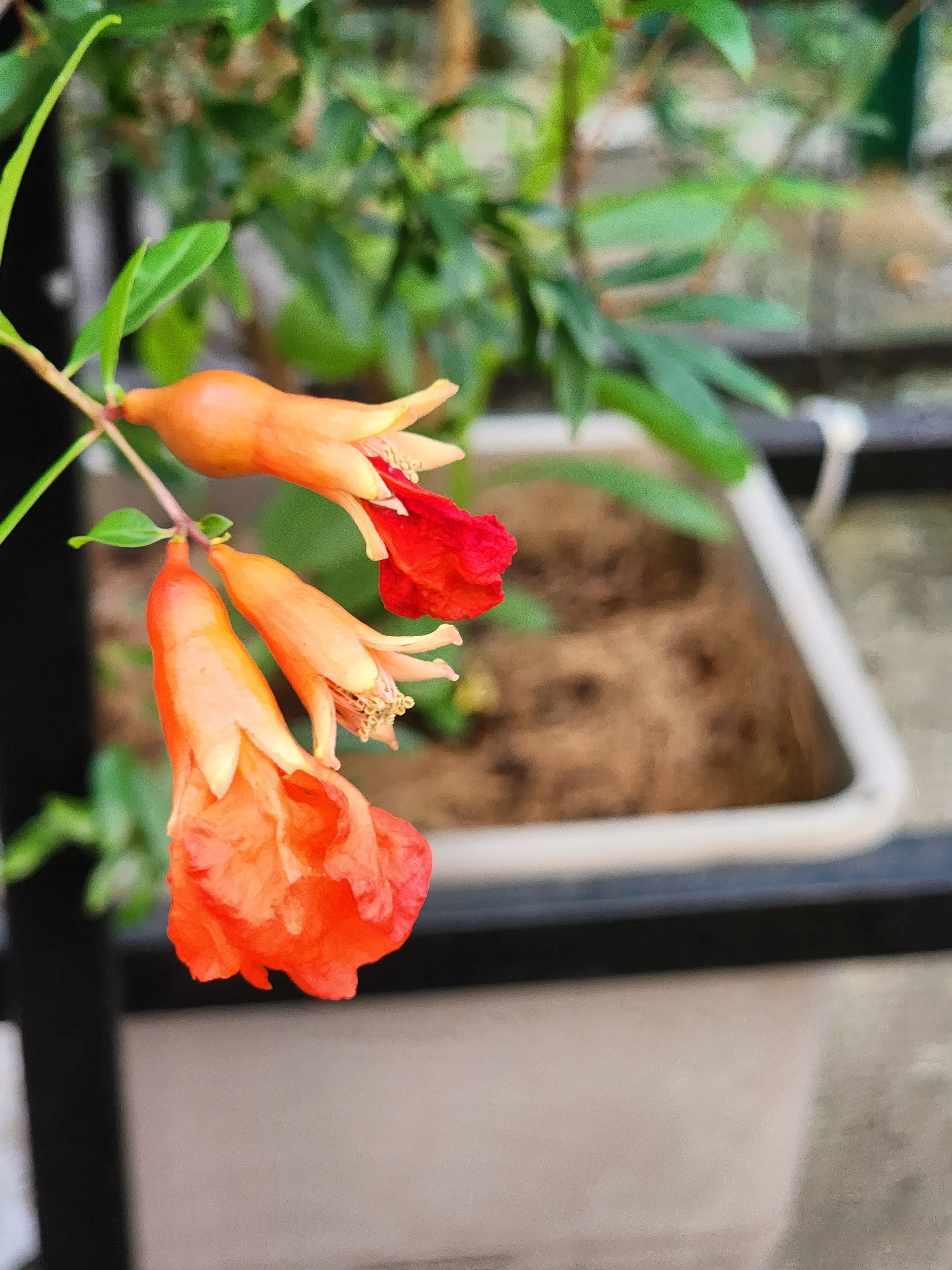
Ensure that the pomegranate is not stressed so it can fruit properly.
PHOTO: ADRIAN LING
How do I get my pomegranate plant to fruit? What is the correct way to manually pollinate it?
Adrian Ling
If there are no pollinating insects in your garden, you can increase the chance of fruit production by performing hand pollination.
Use a small paintbrush to pick up some pollen from the flower’s stamens and brush its central pistil.
Ensure that your plant is not stressed during this time. Do not let it dry out to the point of wilting, and make sure its growing mix is not waterlogged so it does not get wet feet. Such conditions can cause developing fruit, flowers and buds to be aborted.
Answers by Dr Wilson Wong, an NParks-certified practising horticulturist and parks manager. He is the founder of Green Culture Singapore and an adjunct assistant professor (Food Science & Technology) at the National University of Singapore.
Have a gardening query? E-mail it with clear, high-resolution pictures of at least 1MB, if any, and your full name to . We reserve the right to edit and reject questions.


